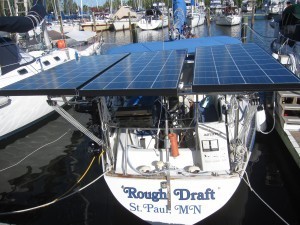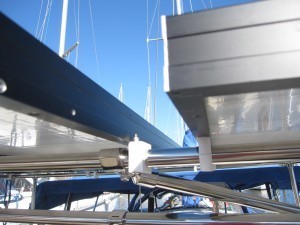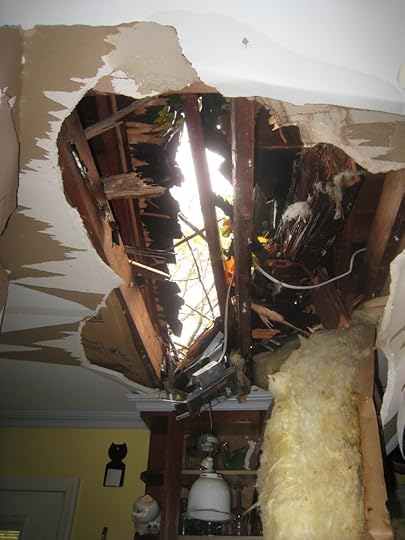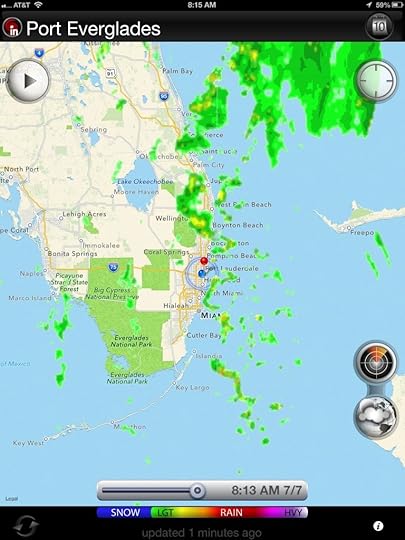Mike Jastrzebski's Blog, page 53
November 7, 2012
We Survived
The presidential election is over. And we survived. At least I think we did.
Who imagined that a whole nation would be so very pleased to now return to the standard fare of TV ads. Ivory Soap, Cialis, Viagra, who knew we’d miss you so much.
And if you have ever wondered why there aren’t more political thrillers or mysteries, the answer is simple – we’ve been exposed to far too much of the real thing.
There are structural problems, too, that sway us from writing political fiction. Truly, what kind of story do you have if there is never any resolution? What does an author craft with characters who rarely evolve? And what of the underlying problem of needing to find at least one protagonist to advance a narrative?
But before I go too far on this riff I will be the first to admit to being spoiled. Just as we may lament about an entitled youth, we easily forget the freedom our successful electoral process guarantees. As authors and readers we should be the first to recognize the freedoms we enjoy, rooted in our ability to write and express without fear of government control.
There is no question that $1B worth of negative advertising leaves us fatigued and wary. But election day, even more than the 4th of July, underscores our liberty. I am reminded of the words John Adams shared with his wife in one of his letters to Abigail back in 1780.
I must study politics and war, that our sons may have liberty to study mathematics and philosophy. Our sons ought to study mathematics and philosophy, geography, natural history and naval architecture, navigation, commerce and agriculture in order to give their children a right to study painting, poetry, music, architecture, statuary, tapestry and porcelain.
Share on Facebook
November 5, 2012
The year of the boat.
By Mike Jastrzebski
It’s actually been the decade of the boat, since we moved aboard in September of 2003, but this year we’ve spent all of our spare time working on the boat.
The first half of the year we spent getting the boat ready to travel to the Abacos. There was no time for writing, not much time for socializing, hell, not much time for each other. I had hoped that we could then go to the Bahamas, test out the boat, and spend a little time working on the next Wes Darling book. The writing just didn’t happen.
Once we reached Cape Canaveral I thought we would kick back, relax a little, and I would write throughout the summer. Silly me. It was more work on the boat. Each day closer that we get to our departure, the workload gets heavier. Fortunately that departure is less than a month away. If all goes well we plan to spend Christmas, or at least New Years Eve, in the Bahamas.
What does this all mean? It means that 2013 will be the year of the next book. I’m looking forward to anchoring out behind a few uninhabited islands, hunkering down in front of the computer, and pounding out the first draft of Stranded Naked Blues, a Wes Darling Mystery.
I’ll admit, there is a part of me that wants to sit back and wander for the next couple of years. The problem with that is I didn’t get a new book out this year and I’m determined that the next book will be out before the end of next year.
But enough of this writing stuff. After all, this is the year of the boat and it’s nearly 8:00 a.m., time to get back to work on the boat.
Share on Facebook
November 2, 2012
Empathy
by Christine Kling
I’m finding it more difficult than usual to write my blog tonight. I typically have some thread of an idea that builds all week and when Thursday night comes, I am able to pull the various strands together to make something of it.
But Sandy has changed that. The last few days I have become a news junkie and I can’t seem to concentrate on the normal threads of my life. After rarely watching TV news, I’ve found myself glued to CNN or the the local news shows. I’ve watched YouTube videos and read Twitter. As a Floridian, I’m devouring each set of new images of the destruction all along the eastern seaboard, of docks washed inland and boats in yards, and I keep feeling more and more saddened. I know that it could have been us.
What I’m feeling for the folks north of me is what is called empathy. Miriam-Webster defines empathy as “the action of understanding, being aware of, being sensitive to, and vicariously experiencing the feelings, thoughts, and experience of another of either the past or present without having the feelings, thoughts, and experience fully communicated in an objectively explicit manner.” Empathy is different than sympathy in that with empathy, one experiences similar emotions, thoughts and experiences while with sympathy one feels sorry for the other and tries to provide comfort. So right now, if what I were feeling was only sympathy, I would just feel sorry for Sandy’s victims. It’s the sadness that makes it empathy. I’m feeling like it happened to me.
I’ve been thinking about this in regards to being a fiction writer. I think a highly developed sense of empathy is crucial to be able to walk in your characters’ shoes. When we read a story and it is flat and uninteresting, it’s usually because the characters are flat and the reader can’t empathize because the writer couldn’t. The story can have great action scenes and a plot with tons of twists, but if the readers don’t care about the characters this stuff is happening to – they won’t fall in love with the book.
This became really apparent to me when Lucas released the new prequel Star Wars films. I was always a huge fan of the original three Star Wars films. I loved the characters. And in 1999, I couldn’t wait to see The Phantom Menace. Yes, the special effects were spectacular and they made the first films look hokey, but I simply could not connect to the story. I couldn’t empathize with the characters.
So, empathy is a two way street for writers. We must be able to empathize with other people, to feel emotions that maybe wouldn’t be ours in the normal course of events, emotions we feel through our connections to other people. And then, we must be able to give those feelings to our characters. That’s how a middle-aged man can write a story with a young female protagonist or a young woman can write a fabulous story about an old man that will make men wonder how she could have known.
But in addition to empathizing with characters, we must always empathize with our readers. Readers have always got to be number one. Of course, it isn’t possible to reach everyone all the time, but we can’t just write the stories we think are cool. We have to write the stories that we think will create a certain response in our readers.
This idea is the same one that all creatives must go through. Since my son now works at the Apple Store, and I dropped him off at work early this morning, I got a look at the crazy people already lined up to get their iPad minis. Therefore, I think it is appropriate to listen to Steve Jobs on this idea of pleasing your customer first. This video is of Jobs talking to a developers’ conference shortly after his return to Apple. At this time Apple was on the brink of going under, and when Jobs is “insulted” with a question about why he is rejecting a certain technology (this was before Flash), he explains his philosophy for turning the company around.
Jobs is talking about empathizing with the end user of his products. He doesn’t want his engineers to create very cool products that please the engineers and then leave it to marketing to figure out how to sell them. He explains that Apple engineers must start off thinking about how they can make products that will offer a great end user experience. In other words, they must empathize with the end user. In the same way, authors who engineer fantastic plots and manipulate their characters to do things that don’t necessarily arise from a place of empathizing with that character, will run the risk of having their books tank the way Apple nearly did.
There will be many “Lessons from the Storm” to come out in the coming weeks, but the thing I am taking away from it all is that it is normal for me to be on this TV binge and wallowing in this sadness. It’s because I’m a writer.
Fair winds!
Christine
Share on Facebook
October 31, 2012
When trees attack…
C.E. Grundler
I’d love to report that my boat has survived Hurricane Sandy unscathed. This massive storm was one for the history books, and the toll it took on the east coast is still being tallied, and around here, we’re still digging our way out of the damage it left behind. The winds that hit my area go beyond anything the region has ever weathered, and coupled with a record storm surge, much of the surrounding infrastructure sustained massive damage. Many of the marinas in my home waters have been devastated, and very few boats, either in the water or on land, came through unharmed. I’m hoping that due to her position, at the highest point in the yard, protected by an old but reasonably solid shed, Annabel Lee is one of the fortunate survivors. But as I type this, I still don’t know.
As I type this, there’s a tree in my kitchen. And my spare bedroom/office. And I don’t mean a bonsai. No, I’m talking about a 100+ foot oak, formerly tall and majestic, but now uprooted and lying diagonal, balanced precariously between my yard and rooftop. It came down just as Sandy made landfall to the south and winds shifted from merely unnerving to downright terrifying. It came down with an impact that shook the house, knocking books and cups from shelves and turning pictures on the walls sideways. Several larger limbs tore instant skylights through the ceiling, sending sheetrock and shingles, leaves and splinters flying across my kitchen floor.
Fortunately, no one, human, canine or feline, was hurt, though we were all severely rattled, and we hastily rounded everyone into the relative safety of the basement. I’m grateful that whoever originally built this house seemed to construct it of doubled beams and excessively thick lumber. We’d often joked about the house’s inexplicable, almost ‘bomb-shelter’ like qualities, but as we rode out the remainder of the night, we truly came to appreciate it.
After a long and sleepless night, dawn allowed us to inspect the full extent of the damage. The weight of the tree still balanced upon the peak of the roof, with shattered limbs ripping into the roof through various points. Half our chimney was gone, beams and vents crushed. Upsetting as it was, compared to the reports coming in over the news radio, filled with horrifying and heartbreaking stories of damage and loss, we considered ourselves reasonably lucky. The house can be repaired, and the only casualties we’d encountered included a vintage kit-kat clock, an old piggy-bank that crashed down from a shelf, and ironically, a weather glass that had all night been vividly displaying the dropping air pressure.
Bands of rain continued to arrive, as they had all night, and in the daylight we went onto the roof to cut away the outer limbs so we could nail a tarp down over the roof and finally dry up inside. Cars and people slowed as they passed, and neighbors came to offer any assistance they could. Thursday morning we’re scheduled for a tree service with a crane to lift the massive oak from the roof – by the way it is balanced cutting it free would cause more damage, and once that is done and the roof patched, we’ll finally be able to turn our attention to checking the boat. I can only hope Sandy has left me no other unpleasant surprises.
Share on Facebook
October 29, 2012
Decision time
By Mike Jastrzebski
With work on the boat winding down Mary and I are facing a decision that will affect our cruising destinations for the future. The decision? Should we sell our car?
Now that may not seem like much of a decision, but having a car has been our one connection with the “real” world since we began cruising nine years ago. (We actually left Minnesota on Rough Draft and headed south nine years ago today). When we left Minnesota we stored our car in Mary’s mother’s barn. When we left Mobile we found a local storage lot, and when we headed over to the Bahamas this past June we did the same thing. Harbortown Marina, where we are currently docked, has even agreed to let us keep our car in the parking lot, so it won’t cost us a dime to store it.
As cars go, it’s not much. It’s a 2004 Dodge Stratus with 115,000 miles and a few dings. So what’s the dilemma? Well, if we keep the car it commits us to coming back Cape Canaveral next summer for hurricane season.
There is a degree of comfort knowing that we have a place to return to, a car, a home port. It also means we can’t make a spur of the moment decision to head south to the Caribbean or north to the Chesapeake.
Some would argue that it’s an old car, sell it and buy another if you come back to Harbortown. The problem with that scenario is that we know this car. We’ve maintained it. In fact, we just put $2000.00 into the car before we left for the Bahamas in June. If we come back for five months we aren’t going to want to spend a lot on a car then sell it again if we head out again next winter. As I said, it’s a dilemma and we have to make the decision in the next week or so if we hope to sell the car and get out of here by the first of December.
If anyone would like to share their thoughts on the issue please feel free to comment. Who knows, your feedback may be the turning point on our decision.
Share on Facebook
October 26, 2012
Tropical storm warnings
by Christine Kling
I’m sitting in my little Florida efficiency apartment tonight listening to the howl of the wind round the sliding glass door and the constant shushing of the rain pouring down outside. Yes, I’ve arrived back home to Florida just in time to say hello to the outer bands of Hurricane Sandy, which is passing over the central Bahamas tonight. It is because of storms like this that so many boats are down in Trinidad right now, where they know that statistically they are very unlikely to experience a hurricane. Here in Florida, not so much.
Sandy has already claimed 21 lives as she steered her way north across Jamaica and Cuba. As to how many boats have suffered, who knows. And right now she is just brushing by the southeastern US, but heading for the northeast coast.
My boat, Talespinner, is outside my condo building here snugged up to her side-tie along the canal, and when I went down at dusk to check her lines and fenders, the water was almost up to the level of the dock – a sure sign that that the South Florida Water Management folks had opened the flood gates to prepare for this long night of rain on the Everglades just to the west of us. I sat down below in the cabin as the wind howled and she pulled at her lines, but tonight we aren’t expected to get anything like they will get out in the islands. Here at the condo docks, liveaboards are illegal but I was tempted to break the rules and spend the night aboard anyway. I felt a bit like a traitor when I put in the drop boards and headed upstairs to cook dinner for my son.
At the time, I wondered if a “real” sailor wouldn’t have stayed there with the boat. While we aren’t forecast to get winds stronger than 45 knots, still one never knows when dealing with a tropical storm. And when I was down in Trinidad visiting with sailors who had arrived there from Europe, South Africa and North America many of them asked me where I sailed on my boat and if I didn’t want to take off farther afield and become a real cruiser.
I’ve been thinking quite a bit lately about this business of being a real sailor and/or a real writer.
I was interviewed by a reporter while I was in Trinidad via iPad video conference (FaceTime) for a story he’s doing on self-publishing, and he asked me that same question they all ask. “Do you have a writing routine? Like do you write a certain number of hours every day?” My answer is always a guilt-laden “No.” There are some days when all I do is work on the boat or go sailing or spend an entire day hanging out with friends.
Surely, if I were a real writer I would write every day like all the experts say I should. If I were a real writer, I wouldn’t feel the need to outline or make all these character sketches. I would just start writing and my characters would talk to me and tell me what is going to happen. I’ve been reading interviews and going to author readings at bookstores for years, and when writers say that they don’t even know how a book is going to end – and that if they did they would’t want to write it any more – I always start to feel like a fraud. Surely I can’t be a real writer if this process isn’t so magical for me. See, my characters don’t “talk to me.” I make them talk. I become them the same way an actor becomes his character. But at the end of the day, I know it is me doing the talking, making the decisions, writing the story. And I find, like my blogmate Michael expressed a few weeks ago, that when I am sailing or traveling or talking to friends, in the back of my mind I am working on my story. I am taking character traits from the people around me, asking questions that bear on my plot, and exploring places that I will need to describe on the page.
Yesterday, I had a long phone conversation with Mike J and he, too, asked me if I’d done much writing while I was down in Trinidad. We all know how hard he has been working on his boat trying to get ready to go out and head down to the islands, possibly down to the Caribbean. I could hear the guilt in his voice when he said that he just can’t manage to switch hats in the middle of the day and work on the boat for a few hours and write for a few hours. I recognized that guilt because I feel it all the time, too. That kind of guilt and self-doubt can be crippling for an author and I’ve heard the warnings in my thought processes lately, felt the outer bands sweeping across me.
Those of us who write on the water lead hybrid lives. There is no dividing line, though, no magic hat we put on to assume one role or another. Whether installing a new head or solar panels, whether flying down to visit sailing friends in Trinidad or sailing across to the Bahamas, we are still soaking up all the details of the real world so we can put them into our fiction. I know this in my head, but it’s in my gut that I feel the fear that maybe this book or this passage or this project is too big, too complicated for me, and I won’t measure up because I’m just not real enough.
So about making those characters come to life and talk to me – I guess we all do this gig differently, and that’s just not my process. But you know what would be really cool? If I could get one of my characters to stand a night watch for me!
Fair winds!
Christine
Share on Facebook
October 25, 2012
Tetanus shot?
C.E. Grundler
It seemed like a good idea, all things considered. So I called my doctor yesterday, and asked to set up an appointment. I can’t remember the last time I’d had one, though I know it’s been at least a decade, and every time I found myself reaching for the bandages/peroxide/ointment box it would cross my mind that it might time for a booster. But then I’d clean and wrap whatever new wound I’d inflicted upon myself and dive back into work, promptly forgetting… until the next time.
This time around, I left myself a reminder. I masking-taped a note onto the front of the bandaids, scrawled with a Sharpie, stating quite simply but eloquently: “TETANUS SHOT!” And it worked. Midway through another day of boat work, I found myself reaching for that box, and once I finished attending to my most recent injury, I dialed the doctor’s office.
“I’d like to get a tetanus shot,” I explained.
“Oh, have you cut yourself recently?” I was asked, as if that would be unusual. I regarded my hands, each sporting multiple day-glo colored band-aids. It’d be more surprising if I hadn’t cut myself recently.
“Mmmm, yeah.”
Well, they got me right in. The doctor seemed to be concerned about the collection of band-aids I wore, and what had led to them. A boat, I explained. An old boat that I’d been restoring. These minor flesh wounds simply came with the territory of removing frozen bolts, prying up wood secured down with 5200, and tool boxes full of sharp objects. Fortunately I heal exceptionally fast, and most of my injuries rarely leave a trace after a few weeks. The doctor asked many questions – apparently she found it fascinating that a woman would undertake a project of that nature, as well as my cavalier attitude towards these frequent mishaps.
I suppose that’s where the writer in me comes through. Whenever I wind up with another injury, even as I’m cleaning and bandaging, I’m considering what led to that bloodshed and how I could use it in a story. It’s amazing the things I’ve discovered, such as just how deep the edge of ordinary metal tape can slice skin, or what it looks like when good Dremels go bad. A moment’s distraction around a heat gun can result in some impressive burns. A grinder can really dig down into wood and fiberglass – what if that were instead flesh? (I prefer to ponder that one rather than find out firsthand.) Boats and power tools offer so many opportunities for ‘accidents’, either accidental, or otherwise, which, I suppose, is why my muses and I enjoy it. And I’m happy to report, the tetanus shot itself hurt far less than the reasons I was getting it to begin with.
Share on Facebook
October 24, 2012
On Assignment: London/Skyfall
Things must be pretty flush at Write On The Water given that Mike has me on assignment, headed to the UK. Perhaps it’s an effort to keep up with the likes of the Huffington Post, or maybe he has figured out one those subliminal revenue streams so common to the Internet world. In any event, I am 35,000 feet above the Atlantic heading east on a Seven-fifty-something in the late evening while I write this post.
My purpose? The world premier of the new James Bond movie – Skyfall. More specifically? Research on the 56 meter sailing yacht, Regina, used in the movie.
There are certain requirements for Bond movies, boats being one. You need not rely on a web search to recall the speedboats in Venice, yachts in the Bahamas, or fast runabouts in Louisiana from earlier 007 movies. Word is, Skyfall will not disappoint in this regard.
Fans of serialized entertainment are not without demands. Best-selling author Janet Evanovich acknowledges that she has to blow up a car in each of her Stephanie Plum mysteries. Likewise, Lee Child is candid in explaining that each Jack Reacher book needs to be only but a variation of the prior read – different enough to be new and engaging, but familiar enough to reward expectations.
This play off of an existing theme may sound like a short-cut, a cheat on the creative process. It might be when it is poorly executed. In good hands, it delivers both originality and faithful audiences.
Whenever I hear those first notes of the Bond theme song I pay attention with boyhood enthusiasm and I wait for what follows. Entertainment, they call it. I hear the Queen even takes an interest. And why not?
Cheers, Bond fans.
Share on Facebook
October 23, 2012
Vampire Slayer Murdered in Key West
This past weekend, right in time for Halloween, my collection of short stories – Vampire Slayer Murdered in Key West – went on sale on Amazon as a trade paperback ($10) and as a Kindle eBook. I presented the stories in the order they were written and at the end put a short footnote about how the story came about or something else that I thought the reader might enjoy.
The lead story, Finding Picasso, is the first Mick Murphy story that eventually ended up leading me to write the series. You can see in the stories how Mick Murphy’s character developed.
I find it more difficult to write a short story than a novel. Each story needs to be precise, no wasted words, or adding characters for fun. In a novel, I can take time to develop characters and play with the plot line.
I cannot write songs because of how precise the good ones are. Short stories I keep my hand in, but only between novels to keep my writing schedule on schedule. It’s easy to stop a daily routine, hard has hell to get back to it!
If you like my Mick Murphy series, you might enjoy this book and learn a little about Mick’s past and development.
Share on Facebook
October 22, 2012
Power up
By Mike Jastrzebski
Mary and I drove to Fort Lauderdale this past week and picked up three 140 watt Kyocera solar panels for the boat. I mounted them on top of the davits and I’m hoping this will give us enough power so that we can get by without running the Honda generator while we live at anchor this winter.

I still have to wire the panels and as with most boat projects things didn’t go as smoothly as I would have liked.
The first problem I had to overcome was West Marine. I wanted to use some rail clamps I purchased in the past from West Marine. Because I was in Fort Lauderdale, I went to their main store and alas, they had only two packages of the clamps. Each pack contains three clamps and I needed twelve clamps. The cashier informed me that there were plenty of clamps in the warehouse and she would be glad to order them for me. Since I was heading back to Cape Canaveral, I told her I would just stop at one of the other West stores in the area and pick up two more packs of the clamps.
Sorry, she informed me, but none of the stores in the area had the clamps in stock. I still didn’t figure I had a problem and when I got out to the car I called the Cape Canaveral store. Sorry, they informed me, but not in stock. Also not available in any nearby stores, but they could order them for me and have them overnighted for an additional $30.00.
Finally I called the Vero Beach Store. They had one package in stock but all of the nearby stores had none. This means that of almost every store between Fort Lauderdale and Cape Canaveral were out of this item.
The solution, I made my own clamps. Here’s a picture. The clamp on the right is the West Marine clamp, the one on the left is a homemade clamp.

As you can see I did get the panels up, but I have one more little self inflicted problem. When I mounted the first two panels I was more worried about placing them as close to the edge of the bimini as I could and I didn’t realize I’d placed the panels so that I couldn’t unscrew two of the screws that allow me to access the wiring connectors. Today I’ll move those two panels 3/4 of an inch so that I can wire them. Next week I’ll let you know how well the panels work.
Share on Facebook








